Swiss training planes conquer difficult market
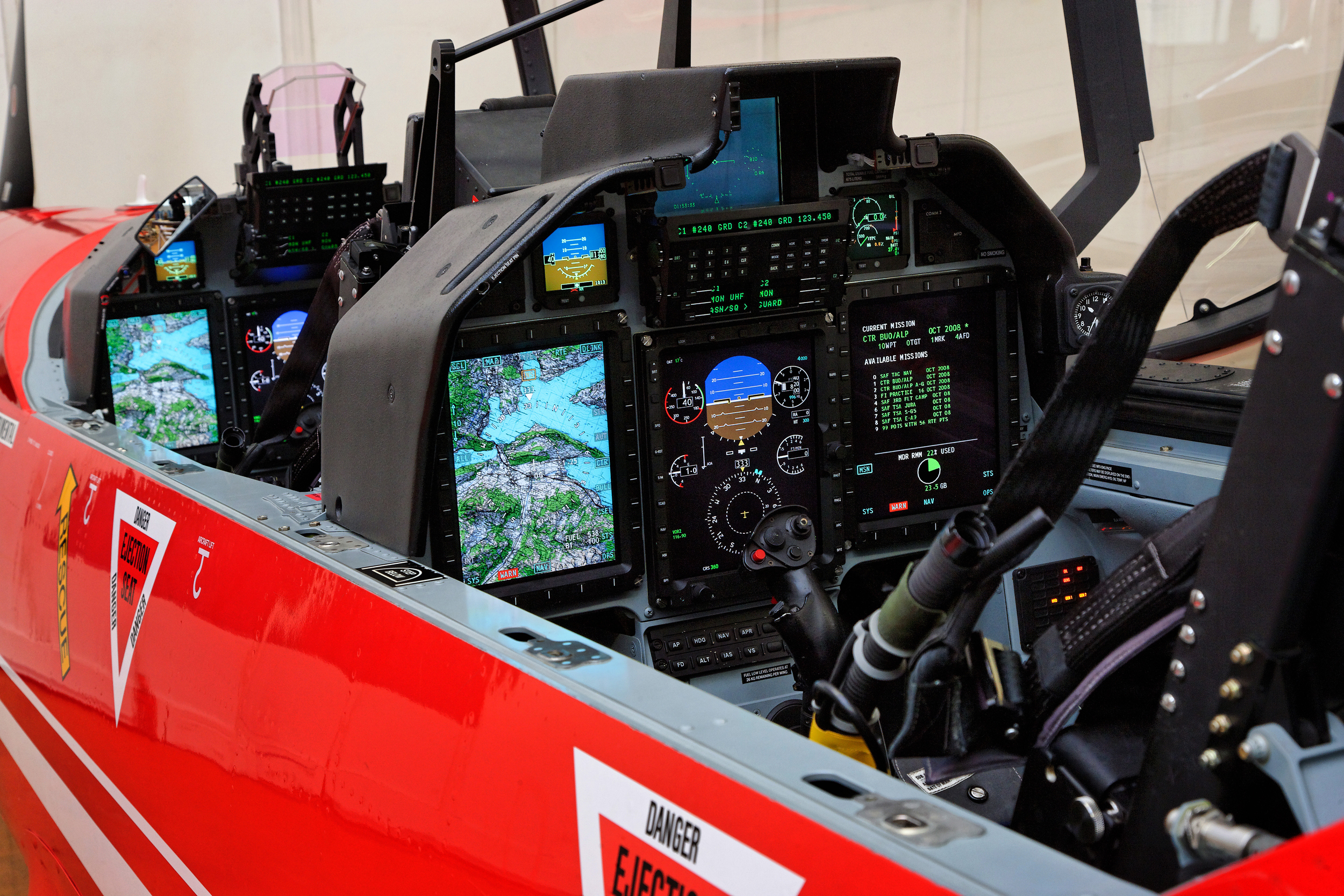
Swiss manufacturer Pilatus has little trouble selling its training aircraft to the world’s air forces despite operating in a shrinking market. A success that owes much to the technology it has developed over the years.
Based in Stans, canton Nidwalden, Pilatus saw its sales jump substantially in 2011. It took in SFr781 million ($832 million) last year, up 14 per cent on 2010.
The future looks bright too. Since the beginning of the year, the company has received orders for 154 aircraft, including 79 for the PC-21 trainer.
According to British pilot Peter Collins, Pilatus, and specifically the PC-21, is so successful because it allows air forces facing budgetary restrictions to produce pilots specialised in flight and attack techniques at a lower cost in the least possible time.
“What may be needed in future is a trainer that is docile in handling and yet with such high performance and in-built sophisticated simulated training systems that it can replace three or four types and cover a complete air force’s generic training programme,” he wrote in online magazine Flightglobal.
Collins, who tested the PC-21 himself, says it fulfills those criteria.
Versatile
“The Swiss air force has shown that PC-21 can be used during the entire training process,” says Max Ungricht, editor-in-chief of Swiss magazine Cockpit Aero. “It’s something that didn’t exist before.”
“We always had two or three types of aircraft between the initial flight training and the fighter jet. That costs more and takes longer, so the Pilatus system has a big advantage.”
Two major characteristics help the PC-21 fulfill the latest requirements. One is that despite being a turboprop aircraft, it flies like a jet.
“It is designed to overcome the main disadvantage of a propeller aircraft, which tends to veer because of engine movement and the pressure generated by the propeller on the fuselage,” Ungricht told swissinfo.ch.
“This is automatically corrected on the PC-21, unlike on similar aircraft. The pilot feels like he is flying a jet, in a straight line.”
This feeling is reinforced inside the aircraft. “The PC-21’s cockpit is very similar to that of the F/A-18 fighter jet used by the Swiss air force,” adds Ungricht.
The client can also ask for a specific set-up inside. According to Collins, the Pilatus cockpit can be adapted to resemble those of the most modern jets, such as the Mirage 2000, the Eurofighter Typhoon or the Saab Gripen.
Track record
But this capacity to innovate and adapt does not explain Pilatus’ commercial success alone. The company also benefits from its positive image among specialists and decades of experience.
“Pilatus began building planes in 1947 with its first model, the PC-2, which was already a very advanced training aircraft for its time,” points out pilot and instructor Raoul Weit. “The company focused from the beginning on reducing costs compared with bigger and more powerful aircraft and guaranteeing flight handling that makes their aircraft very nice to fly.”
“These aircraft are very reliable,” he adds. “The cost-quality relationship is truly exceptional for the user. In the Swiss air force, there are PC-7s that are over 30 years old but that are often like new.”
Pilatus has also benefited from a market where there is less and less competition. With fewer combat aircraft operating, there is less demand for training aircraft, leading manufacturers to abandon the sector.
“In the 1980s, there were around 500 military jets in Switzerland, compared with just 35 nowadays,” explains Weit. “We had to train 70 to 80 pilots per year then, whereas that figure is around eight now. Other European countries have also cut back, shrinking the market for training aircraft.”
Success has come at a cost sometimes for Pilatus. Its exports have sometimes generated controversy, as its training aircraft have in some cases been armed after their sale by the end user to change them into ground-attack planes.
Given that Switzerland is neutral, this has become an issue as Swiss law forbids arms exports to countries involved in conflicts.
Pilatus boss Oscar Schwenk recently admitted that an Israeli company, Elbit Systems, was proposing to retrofit older models such as the PC-7 and PC-9 with weapons packages.
However the more recent PC-21 could not be armed without Pilatus’ support “since the aircraft flies with computer assistance”, he told Swiss business weekly Handelszeitung.
Aviation specialists say the discussions around whether Pilatus aircraft can be armed is not a real problem.
“The results are far from conclusive,” says Weit. “The Pilatus’ aren’t designed to carry a payload such as bombs or missiles. You can always try to arm one, but aerodynamics is a science and it’s hard to break its laws.”
“Any aircraft can be armed, even mine” adds Ungricht. “A Pilatus is not designed as a combat aircraft. It’s a pity that the company has been criticised about this arms issue rather been highlighted as an extraordinarily successful small firm.”
The company was founded in 1939 in Stans by Emil Georg Bührle, Elektrowatt and Austrian arms dealer Anton Gazda.
Their aim was to modernize the Swiss air force, which was still in a development phase, and create a domestic aviation industry.
The company took over revisions and checks of all the air force’s planes while it developed and produced military training aircraft (PC-2, PC-7, PC-9) as well as small civilian planes (PC-6-PC-12) that become widely sold abroad.
Sales in conflict zones (Laos, Myanmar, Bolivia, Chile, Iraq, Chad, etc.) led to political discussions about Swiss weapons exports.
Source: Swiss Historical Dictionary
Pilatus had record results in 2011. Sales increased by 14 per cent to SFr781 million, while earnings were up 23 per cent to SFr108 million.
Orders over the same period were worth SFr416 million.
Those results could be bettered this year after three orders were placed.
India has put in an order for 75 PC-7s, the biggest ever registered by Pilatus. Worth around SFr500 million, it includes simulators and logistical support.
Saudi Arabia chose to purchase 55 PC-21s. Simulators, ground support equipment, training equipment and spare parts are part of the order.
Qatar has ordered 24 PC-21s.
(Translated from French by Scott Capper)

In compliance with the JTI standards
More: SWI swissinfo.ch certified by the Journalism Trust Initiative

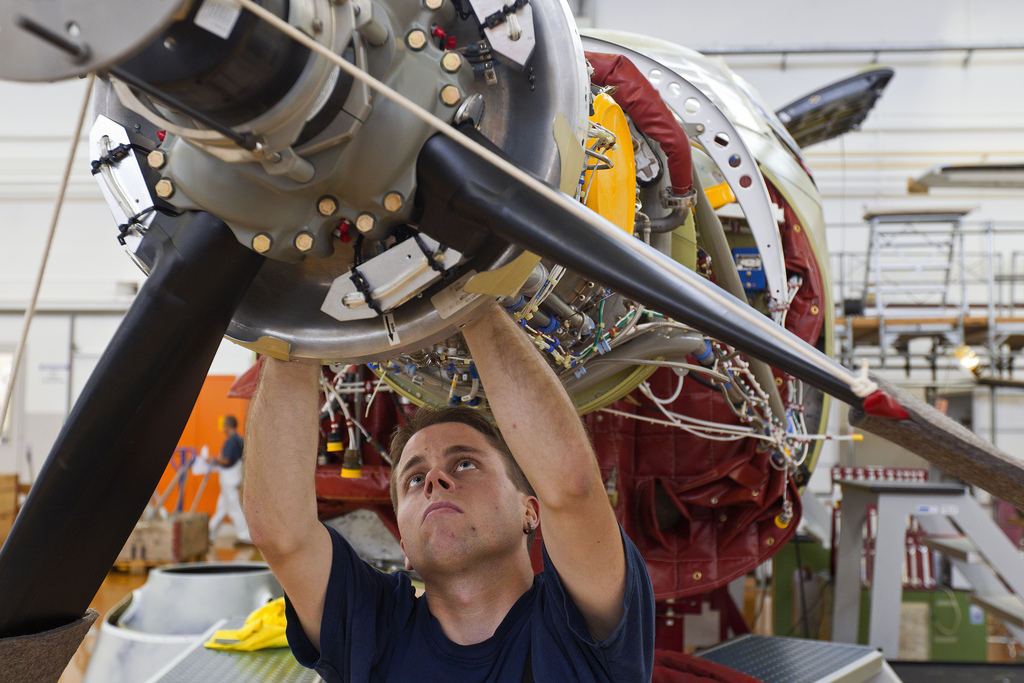
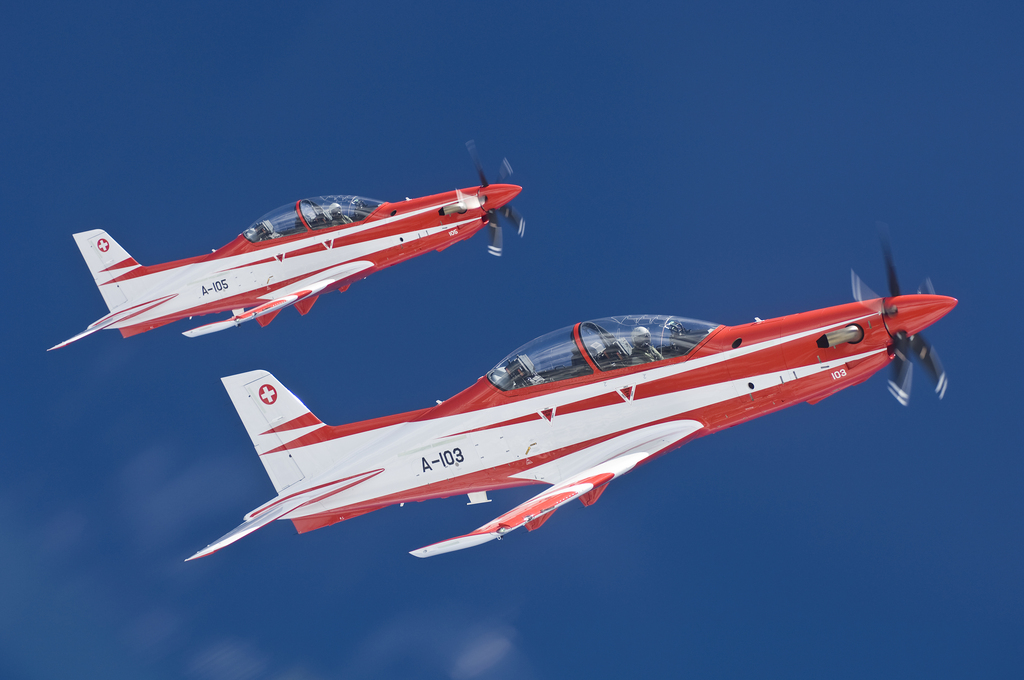
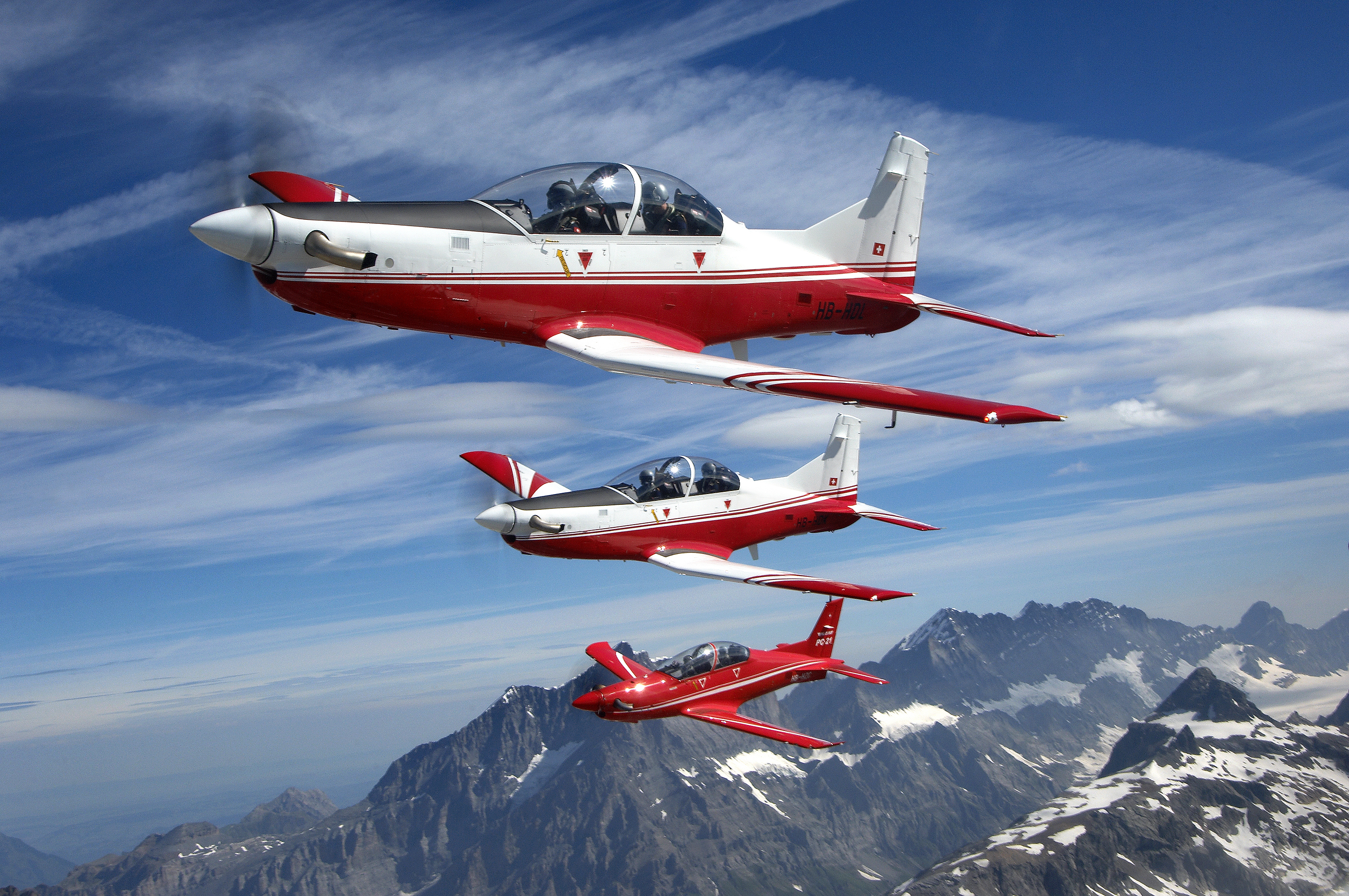
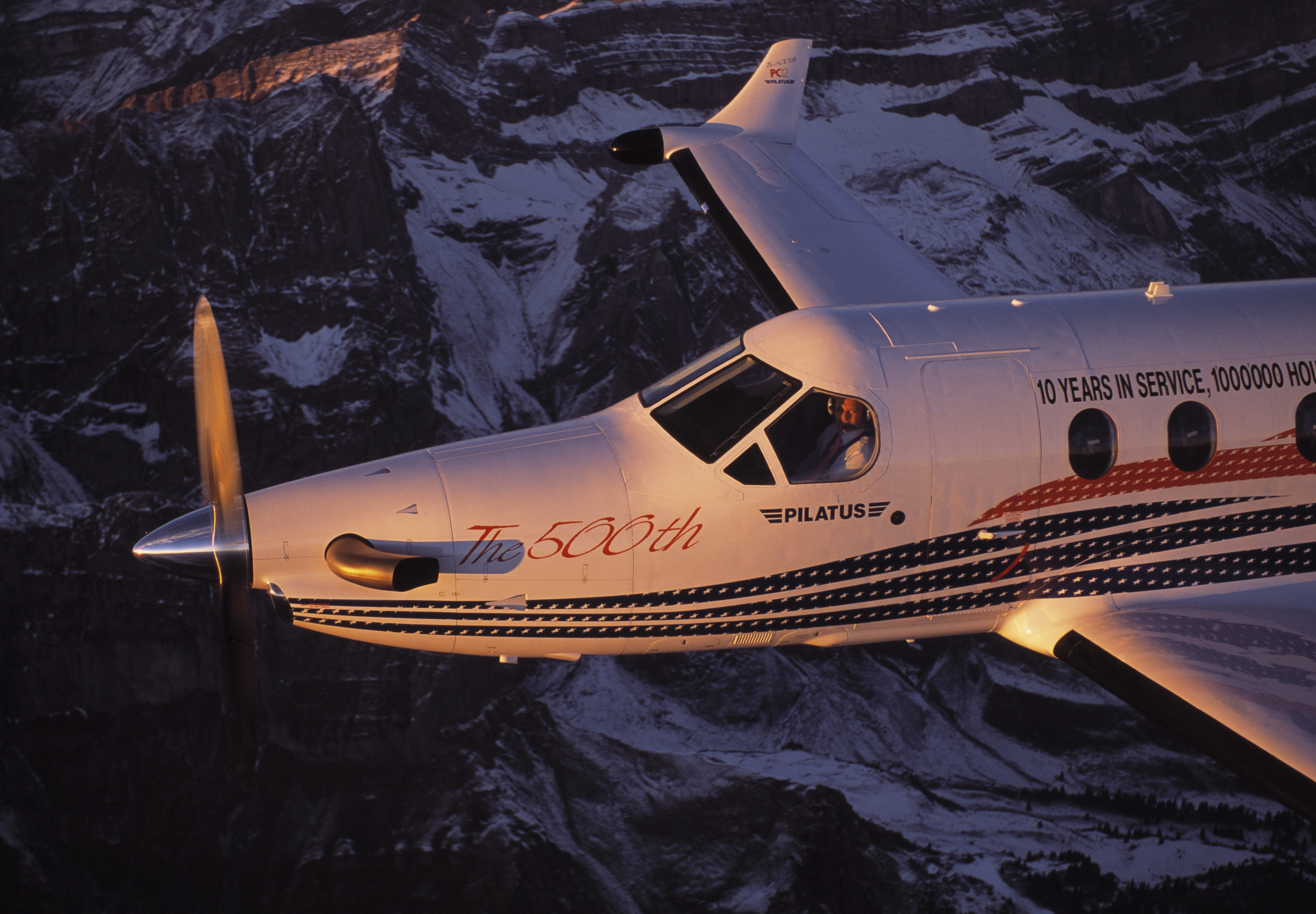
You can find an overview of ongoing debates with our journalists here. Please join us!
If you want to start a conversation about a topic raised in this article or want to report factual errors, email us at english@swissinfo.ch.